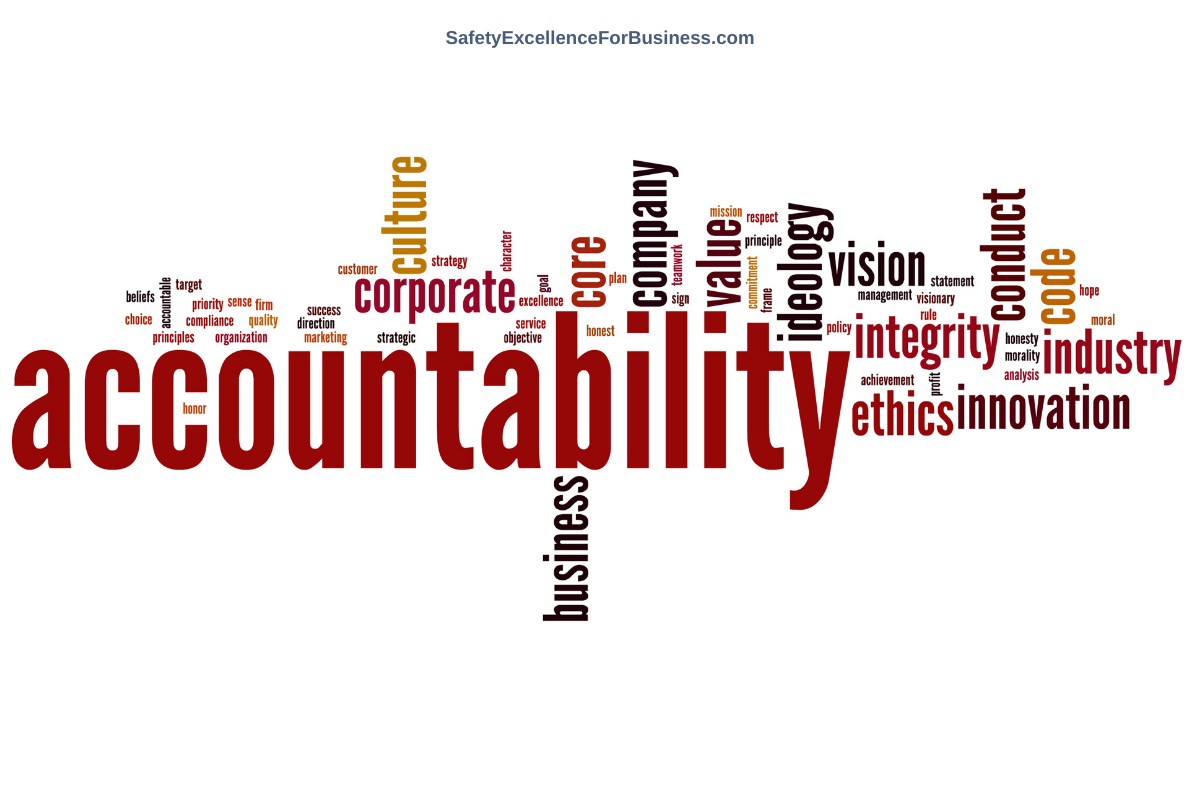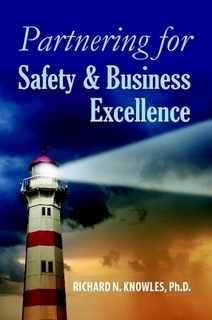Have you heard of “The Oz Principle?”
The New York Times bestseller, The Oz Principle, defines accountability as “a personal choice to rise above one’s circumstances and demonstrate the ownership necessary for achieving desired results.”
Some people cringe when they hear the word accountability. Some people are afraid of it. Why is that? I have a very basic philosophy when it comes to being accountable for safety in the workplace:
“It is not okay for me to make my living
where it is okay for you to get hurt,
physically or psychologically!
So, let’s figure it out together…
how to profitably stay in business and
stay safe and secure all at the same time.“
The real why: All organizations know that one of the keys to their success is safe operations; that is, ensuring that their People go home at the end of their shift in one piece – having their eyes, ears, limbs, and life intact, regardless of the position they hold or the task at hand. This is the fundamental bottom line of accountability. It means looking out for your own safety and that of your coworkers all the time.
Safety results are an aspect of culture – how it is led, taught, reinforced, expected, and enforced – in the safe performance of tasks, in the safe conditions of the environment, and in the respectful engagement of employees in their own safety and those of their team. Safety refers to injuries, incidents, and fatalities in the workplace, as well as the potential psychological harm from bullying and harassment and of course, to the security of our workplaces to being vulnerable to an active shooter. Accountability needs to be present in all dimensions.

But employee safety and wellbeing are not inherent to workplace cultures – they are actively fostered and maintained through a commitment to accountability. (Safety is led through our shared accountability.) Effective leaders do not ignore safety accountability if they care about their people. So effective and caring connect with accountability. Where do you see yourself in terms of Accountability? Are you owning it? Are you accountable through the hard stuff and the easy stuff?
I was particularly uplifted to read in the March 2021 issue of Professional Safety Magazine, an article by Paul A. Esposito, “Safety through Accountability & Recognition.” In the article he quotes OSHA (1989) – (and this is worth noting):
“Management commitment and employee involvement are complementary. Management commitment provides the motivating force and the resources for organizing and controlling activities within an organization. In an effective program, management regards workers’ safety and health as fundamental value of the organization and applies its commitment to safety and health protection with as much vigor as to other organizational purposes. Employee involvement provides the means through which workers develop and/or express their own commitment to safety and health protection, for themselves and for their fellow workers.“
So back to the Oz Principle for Accountability.
It is a personal choice. You make that choice every moment, in every hour, in every day and every year while working within your workplace, while doing YOUR job.
As we start a new quarter of 2021, why not do some introspection around the choices you make. Do you have the courage, care, concern and commitment to make a positive difference? Have you formed bad habits? Are you taking shortcuts? Do you step in when you see something unsafe or do you shy away? Do you care about your workmates? Are you doing your best to work safely, and to look out for your coworkers because it is the right thing to do?





